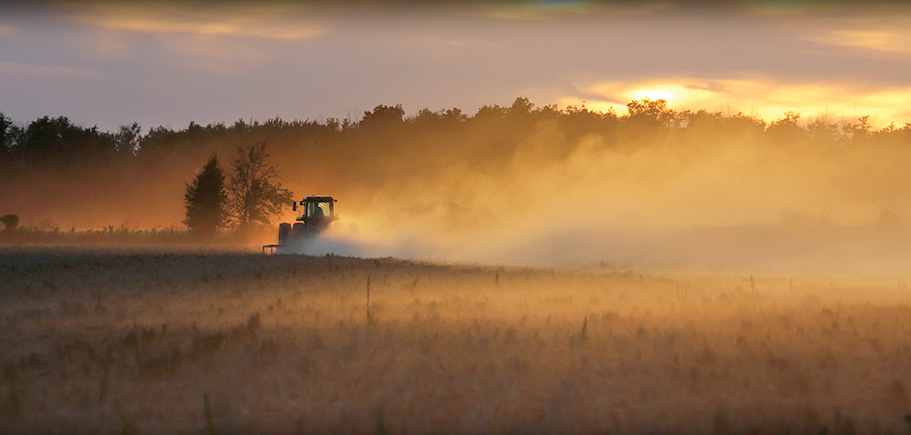Ontario’s farm leaders want province to scrap plan for three severances per farm
Ontario’s largest farm groups want the provincial government to scrap the idea of allowing farmers to create three residential lots on their land.
The province is revamping the provincial planning statement which guides all municipalities on planning. As part of that bill, the province says up to three residential lots could be created in rural areas. But the leaders of Ontario’s 12 farming organizations issued a statement condemning the idea.
The farm leaders say residential lot creation in agricultural areas has always been controversial, fragmenting the agriculture land base, inflating farmland prices, increasing costs to municipalities and leading to more conflicts between rural residents and farmers over their farm practices.
The groups are also concerned about taking farmland out of production and what the policy could do to the cost of land.
“We have significant concerns regarding the speculative investment that this proposal will drive, resulting in farmland values that make farming even more unattainable for the next generation. Any policies that might open land for speculative purchase and investment need to be discouraged,” the leaders of the Ontario Federation of Agriculture, the National Farmers Union, the Christian Farmers Federation of Ontario, and multiple organizations representing different sectors of agriculture.
“Ontario’s farmers are positioned to seize opportunities and rise to the challenge of an ambitious growth strategy, allowing the agri-food sector to drive the economy forward. To farm, we need farmland. … Additional lot severances proposed will make it difficult or impossible for farmers to operate, expand and grow their farms.
“We do not support policies that will increase residential lot creation in prime agricultural areas or in rural areas that are actively farmed. Ontario boasts some of Canada’s richest and most fertile farmland and these policy changes put the sustainability of that land and the food system it provides at great risk.””We do not support policies that will increase residential lot creation in prime agricultural areas or in rural areas that are actively farmed. Ontario boasts some of Canada’s richest and most fertile farmland and these policy changes put the sustainability of that land and the food system it provides at great risk.”
The statement adds directing growth to settlement areas in both cities and small rural towns is better for both agriculture and municipalities.
And while there is concern in the farm politics community, some rural municipalities want to see provincial policies on land severances change.
During Wednesday’s Lambton County Council committee meeting, Dawn-Euphemia Mayor Al Broad said the rules around severances are too restrictive in his municipality.
Broad says in the last few months, two farmers had unused homes which they wanted to sever from their property and sell however, under provincial policy, the remaining farmland would not have been large enough to be a viable farm.
“I’ve got houses being torn down, because they don’t fit the provincial policy for severance, and yet, on Bill 23, they’re trying to ram it through to get more housing,” says Broad. “I’ve got the housing, just make your provincial policy flexible enough …so that that housing can be severed off. And it’s not that we want a severance on every piece of property. But we want something there that makes sense.”
Broad doesn’t want to see productive farmland taken out of use either, however he says there are situations where the land is zoned agricultural but is too small for the equipment used for field crops.
“With three or four acres that’s not practical to go in there with that kind of equipment and yet, we’re putting a house in there,” he says.
With just under 2,000 residents and 867 homes, according to the 2016 Census, Broad says his community needs to have more housing options.
“The province is now saying, under their school policy, that it’s not a complete municipality or complete community unless they have a school. So how do I fill schools when my population isn’t going to be there, and we’re not allowed to do anything out in the country?”





